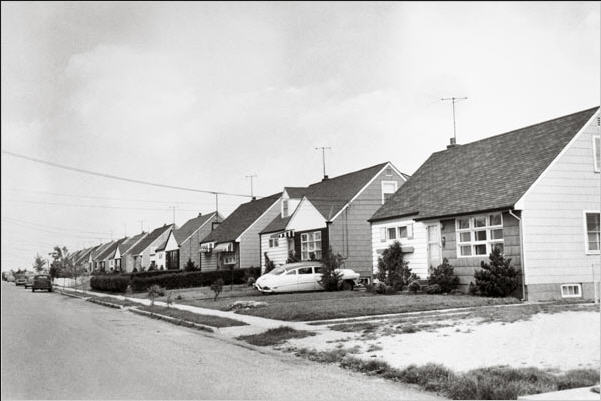In HiLoBrow, Peggy Nelson conducts an excellent interview with media ecologist Douglas Rushkoff, which covers currency, corporations and how the word “home” was gradually redefined to have an isolating effect. An excerpt:
“Rushkoff: From the 1920s to the 1970s an iconography was developed that turned corporations into our heroes. Instead of me buying stuff from people I know, I actually trust the Quaker Oat Man more than you. This is the result of public relations campaigns, and the development of public relations as a profession.
Nelson: Did the rise of PR just happen, or did they have to do that in order to prevent things from getting out of control?
Rushkoff: They had to do that in order to prevent things from getting out of control. The significant points in the development of public relations were all at crisis moments. For example, labor movements; it’s not just that labor was revolting but that people were seeing that labor was revolting. There was a need to re-fashion the stories so that people would think that labor activists were bad scary people, so that people would think they should move to the suburbs and insulate themselves from these throngs of laborers, from ‘the masses.’ Or to return to the Quaker Oats example, people used to look at long-distance-shipped factory products with distrust. Here’s a plain brown box, it’s being shipped from far away, why am I supposed to buy this instead of something from a person I’ve known all my life? A mass media is necessary to make you distrust your neighbor and transfer your trust to an abstract entity, the corporation, and believe it will usher in a better tomorrow and all that.
It got the most crafty after WWII when all the soldiers were coming home. FDR was in cahoots with the PR people. Traumatized vets were coming back from WWII, and everyone knew these guys were freaked out and fucked up. We had enough psychology and psychiatry by then to know that these guys were badly off, they knew how to use weapons, and — this was bad! If the vets came back into the same labor movement that they left before WWII, it would have been all over. So the idea was that we should provide houses for these guys, make them feel good, and we get the creation of Levittown and other carefully planned developments designed with psychologists and social scientists. Let’s put these vets in a house, let’s celebrate the nuclear family.
Nelson: So home becomes a thing, rather than a series of relationships?
Rushkoff: The definition of home as people use the word now means ‘my house,’ rather than what it had been previously, which was ‘where I’m from.’My home’s New York, what’s your home?’
Nelson: Right, my town.
Rushkoff: Where are you from? Not that ‘structure.’ But they had to redefine home, and they used a lot of government money to do it. They created houses in neighborhoods specifically designed to isolate people from one another, and prevent men in particular from congregating and organizing — there are no social halls, no beer halls in these developments. They wanted men to be busy with their front lawns, with three fruit trees in every garden, with home fix-it-up projects; for the women, the kitchen will be in the back where they can see the kids playing in the back yard.
Nelson: So you don’t see the neighbors going by. No front porch.
Rushkoff: Everything’s got to be individual, this was all planned! Any man that has a mortgage to pay is not going to be a revolutionary. With that amount to pay back, he’s got a stake in the system. True, he’s on the short end of the stick of the interest economy, but in 30 years he could own his own home.” (Thanks Longform.)
••••••••••
“And now my bags are packed for travelin’ / Glass, concrete, and stone / It’s just a house, not a home”:
“Here’s your ticket, pack your bag / Time for jumpin’ overboard / Transportation is here / Burning down the house”:
Tags: David Byrne, Douglas Rushkoff, Peggy Nelson

